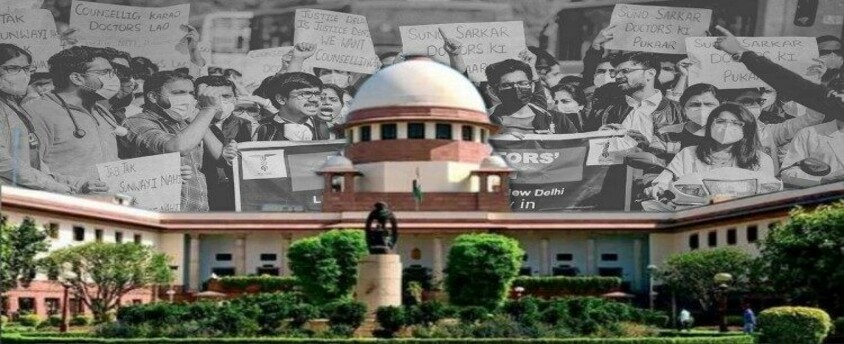EWS quota is ‘economic justice’ and not ‘social justice’, says TN CM Stalin
05, Apr 2023

Prelims level : Rights Issues
Mains level : GS-II Welfare schemes for vulnerable sections of the population by the Centre and States and the performance of these schemes; mechanisms, laws, institutions and Bodies constituted for the protection and betterment of these vulnerable sections.
Why in News?
- Bringing together leaders of different political parties on a virtual platform, DMK president and Tamil Nadu Chief Minister M.K. Stalin strongly opposed the 10% reservation for Economically Weaker Sections (EWS) among the Open Competition category.
Background of the issue:
- The Supreme Court had referred the EWS quota case to the Constitution Bench in August 2020.
- The petitions in this issue raise a “substantial question of law” as to whether grant of 10% reservation violated the 50% ceiling cap on quota declared by the top court itself.
- On whether reservation on the sole basis of economic criteria violated the Basic Structure of the Constitution, one of the Justice took the expansive view that reservation was an “instrument of affirmative action by the state” and should not be confined to just SCs, STs, SEBCs, and the non-creamy layer of OBCs, but also include “any class or sections so disadvantaged as to answer the description of ‘weaker section’”.
- Another Justice noted that “the legislature understands and appreciates the needs of its own people”.
- The three judges in the majority held that reservation on economic criteria alone did not violate the Basic Structure of the Constitution.
- In their minority view, SC held that though quota on the basis of economic deprivation, destitution and poverty was “per se permissible/valid” and even “constitutionally indefeasible”, the “othering” of socially and educationally disadvantaged classes, including the SC/ST/OBC/SEBC communities, on the ground that they already enjoy the benefits of a pre-existing 50% reservation on the basis of their caste and class origins, would amount to heaping injustice based on their past disability.
Who are “Economically Weaker Sections”?
- For the purposes of article 15 and article 16, “economically weaker sections” shall be such as may be notified by the State from time to time on the basis of family income and other indicators of economic disadvantage.’
- Central Government of India has specified certain criteria for identifying the EWS. This will be a class distinct from the already specified classes of SCs, STs and socially and educationally backward classes (OBCs).
- The EWS quota applies to household with
- Annual household income below Rs 8 lakh.
- Agriculture land below 5 acres.
- Residential house below 1000 sq ft.
- Residential plot below 100 yards in notified municipality.
- Residential plot below 200 yards in non-notified municipality area.
What are the Implications?
- The 10% reservation will be in addition to the existing cap of 50% reservation for the Scheduled Castes, Scheduled Tribes and the Other Backward Classes, taking total reservation to 60%.
- The quota targets the poor among the upper castes. This will be over and above 50% mandated by Constitution and hence the need for Constitution amendment Bill.
SC verdict in Indira Sawhney case:
- The proposed law would face roadblocks if challenged in the Supreme Court.
- A nine-judge Constitution Bench of the Supreme Court in the Indira Sawhney case of 1992 specifically answered the question “whether backward classes can be identified only and exclusively with reference to the economic criterion.”
- The constitution bench had categorically ruled that a backward class cannot be determined only and exclusively with reference to economic criterion. The bench had held that economic criterion may be a consideration or basis along with, and in addition to, social backwardness, but it can never be the sole criterion.
- The bench in its judgement declared 50% quota as the rule unless extraordinary situations “inherent in the great diversity of this country and the people” happen. Even then, the court stated that extreme caution is to be exercised and a special case should be made out.






